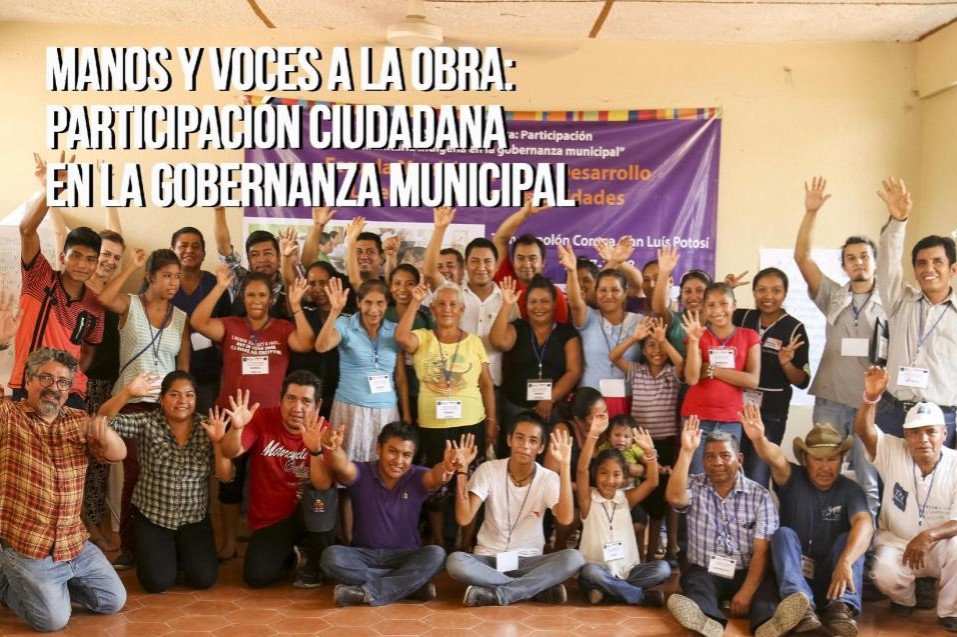In May 2017, The Hunger Project-Mexico launched the “Municipal School for Community-led Development” in two districts in Mexico (San José Tenango, Oaxaca and Tampamolón Corona, San Luis Potosí) under the project “Hands and voices to work: indigenous community participation in local governance.” Eight months into the journey, the team has had the opportunity to discover different ways to build common knowledge, as well as reflect on community practices that bring us closer to a solid local governance.
Today we can say that the construction and reflection of knowledge among rural women, men and youth and nonprofit leaders is possible, which can then have an impact on the daily practices of the community as they work towards community-led development.
During the first sessions of the school, we were able to reflect on the importance of social cohesion, a common practice among indigenous communities. Through the strengthening of bonds of solidarity and mutual aid, communities have worked to achieve a common good and work towards their own development. Rural and indigenous communities have a lot to contribute on the conversation of how to build towards social cohesion, yet this practice must not only be present in these communities but extend to municipalities (local districts), states and the entire country.
The Hunger Project firmly believes that citizen participation is not only expressed at the polls at the time of voting. From early on, citizens can participate in the creation of their communities’ visions, assume leadership positions in development projects and engage with local officials to promote community-led development. As a result, an enabling space is created where citizens can influence local governments, become involved in the decision-making, and collectively strengthen local governance.


